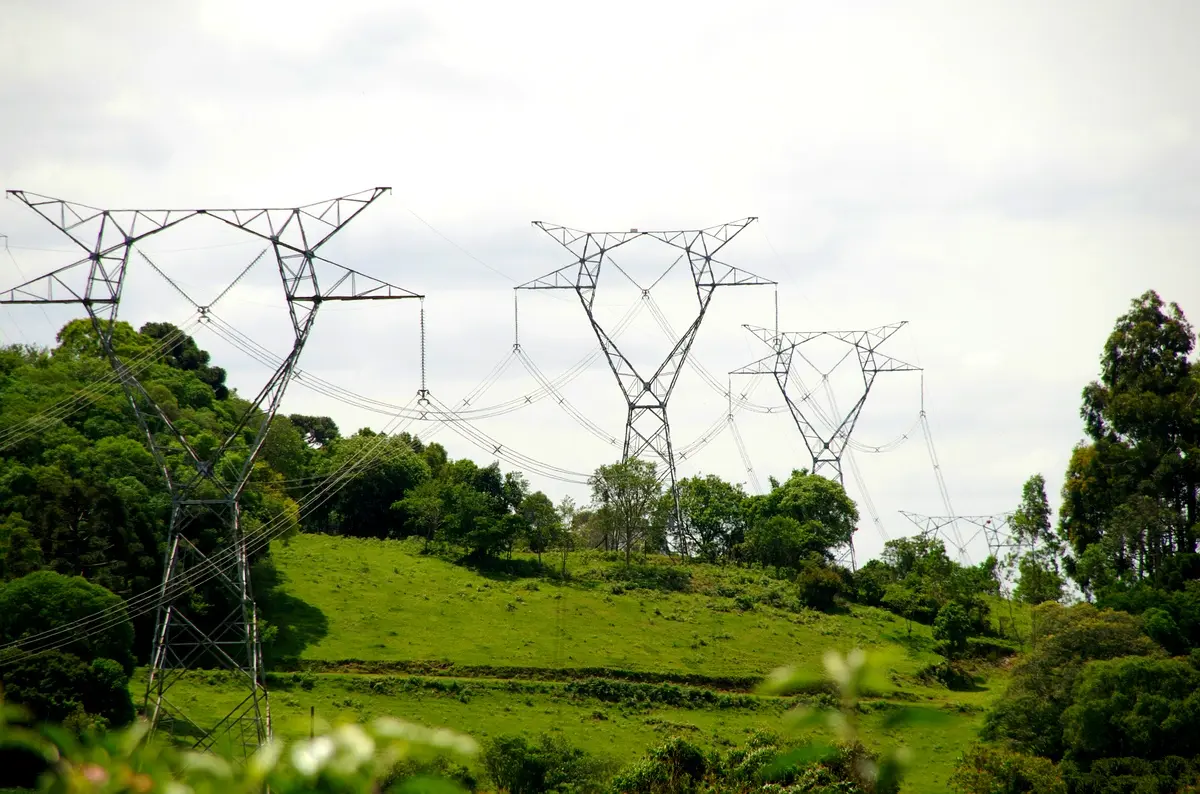What does a case study on energy consumption in Africa reveal about economic growth? This research uncovers surprising causal relationships across 15 countries, highlighting how electricity emerges as a pivotal factor, reshaping our understanding of energy’s role in driving economic development.
V. RESULTS
V-i Unit root test ADF
Table 1: ADF unit root test
| Table 1: ADF unit root test | |||||||||||||||||||||||||||||||||||||||||||||||||||||||||||||||||||||||||||||||||||||||||||||||||||||
|---|---|---|---|---|---|---|---|---|---|---|---|---|---|---|---|---|---|---|---|---|---|---|---|---|---|---|---|---|---|---|---|---|---|---|---|---|---|---|---|---|---|---|---|---|---|---|---|---|---|---|---|---|---|---|---|---|---|---|---|---|---|---|---|---|---|---|---|---|---|---|---|---|---|---|---|---|---|---|---|---|---|---|---|---|---|---|---|---|---|---|---|---|---|---|---|---|---|---|---|---|---|
| Parameter/Criteria | Description/Value | ||||||||||||||||||||||||||||||||||||||||||||||||||||||||||||||||||||||||||||||||||||||||||||||||||||
| Test results |
| ||||||||||||||||||||||||||||||||||||||||||||||||||||||||||||||||||||||||||||||||||||||||||||||||||||
| Additional data |
| ||||||||||||||||||||||||||||||||||||||||||||||||||||||||||||||||||||||||||||||||||||||||||||||||||||
| Supplementary results |
| ||||||||||||||||||||||||||||||||||||||||||||||||||||||||||||||||||||||||||||||||||||||||||||||||||||
Notes: ** Rejection of the null hypothesis of non-stationary at 5% level of significant.
V-ii Result: Causality test between total energy consumption and GDP
Table2: Total energy consumption unidirectional causality toward GDP
| Table 2: Total energy consumption unidirectional causality toward GDP | |||||||||||||||||||||||||||||||||||||||||||||||||||||||||||||||||||||||||||||||
|---|---|---|---|---|---|---|---|---|---|---|---|---|---|---|---|---|---|---|---|---|---|---|---|---|---|---|---|---|---|---|---|---|---|---|---|---|---|---|---|---|---|---|---|---|---|---|---|---|---|---|---|---|---|---|---|---|---|---|---|---|---|---|---|---|---|---|---|---|---|---|---|---|---|---|---|---|---|---|---|
| Parameter/Criteria | Description/Value | ||||||||||||||||||||||||||||||||||||||||||||||||||||||||||||||||||||||||||||||
| Causality results |
| ||||||||||||||||||||||||||||||||||||||||||||||||||||||||||||||||||||||||||||||
Table 3: GDP unidirectional causality towards total energy consumption
| Table 3: GDP unidirectional causality towards total energy consumption | ||||||||||||||||
|---|---|---|---|---|---|---|---|---|---|---|---|---|---|---|---|---|
| Parameter/Criteria | Description/Value | |||||||||||||||
| Causality results |
| |||||||||||||||
Table 4: Total energy consumption and GDP feedback causality
| Table 4: Total energy consumption and GDP feedback causality | ||||||||||||||||||||||||||||||||||||||||||||||||||||
|---|---|---|---|---|---|---|---|---|---|---|---|---|---|---|---|---|---|---|---|---|---|---|---|---|---|---|---|---|---|---|---|---|---|---|---|---|---|---|---|---|---|---|---|---|---|---|---|---|---|---|---|---|
| Parameter/Criteria | Description/Value | |||||||||||||||||||||||||||||||||||||||||||||||||||
| Causality results |
| |||||||||||||||||||||||||||||||||||||||||||||||||||
But in Angola, Morocco, Ghana, Kenya and Cameroon the results are showing a feedback causality between both variables.
That is a bidirectional causality between total energy consumption and GDP (Table4).
Total energy consumption and GDP first test shows that in Nigeria, Egypt, South Africa, Sudan, Ethiopia, Tunisia, Ghana, Libya, Cameroon, total energy consumption has a unidirectional causality towards GDP(Table2).
Hence in Algeria, GDP predicts the value of the total energy consumption (table3). That result goes with the one of (Wolde-Rufael 2005).
V-iii Causality test between Total oil Consumption and GDP
Table 5: Oil consumption unidirectional causality toward GDP
| Table 5: Oil consumption unidirectional causality toward GDP | ||||||||||||||||||||||||||||||||||||||||
|---|---|---|---|---|---|---|---|---|---|---|---|---|---|---|---|---|---|---|---|---|---|---|---|---|---|---|---|---|---|---|---|---|---|---|---|---|---|---|---|---|
| Parameter/Criteria | Description/Value | |||||||||||||||||||||||||||||||||||||||
| Causality results |
| |||||||||||||||||||||||||||||||||||||||
Table 6: GDP unidirectional causality towards total oil consumption
| Table 6: GDP unidirectional causality towards total oil consumption | |||||||||||||||||||||||||
|---|---|---|---|---|---|---|---|---|---|---|---|---|---|---|---|---|---|---|---|---|---|---|---|---|---|
| Parameter/Criteria | Description/Value | ||||||||||||||||||||||||
| Causality results |
| ||||||||||||||||||||||||
Table 8: Feedback causality between total oil consumption and GDP
| Table 8: Feedback causality between total oil consumption and GDP | ||||||||||||||||||||||||||||||||||||||||||||||||||||||||||||||||||||||||||||||||||||||||
|---|---|---|---|---|---|---|---|---|---|---|---|---|---|---|---|---|---|---|---|---|---|---|---|---|---|---|---|---|---|---|---|---|---|---|---|---|---|---|---|---|---|---|---|---|---|---|---|---|---|---|---|---|---|---|---|---|---|---|---|---|---|---|---|---|---|---|---|---|---|---|---|---|---|---|---|---|---|---|---|---|---|---|---|---|---|---|---|---|
| Parameter/Criteria | Description/Value | |||||||||||||||||||||||||||||||||||||||||||||||||||||||||||||||||||||||||||||||||||||||
| Causality results |
| |||||||||||||||||||||||||||||||||||||||||||||||||||||||||||||||||||||||||||||||||||||||
Total oil consumption and Goss domestic product causality tests show that in Libya, Nigeria and Kenya the total oil consumption granger causes the GDP (table 5).
Meanwhile in Algeria, Morocco, the GDP granger causes total oil consumption (table6).
And in South Africa, Angola Sudan, Ethiopia, Algeria, Tunisia, DR Congo, Ghana, Egypt and Cameroon GDP causes total oil consumption and vice-versa (table 7).
V-iv Causality test between total electricity consumption and GDP
Table 9: electricity consumption unidirectional causes GDP
| Table 9: electricity consumption unidirectional causes GDP | ||||||||||||||||
|---|---|---|---|---|---|---|---|---|---|---|---|---|---|---|---|---|
| Parameter/Criteria | Description/Value | |||||||||||||||
| Causality results |
| |||||||||||||||
Table 10: Bidirectional causes between electricity consumption and GDP
| Table 10: Bidirectional causes between electricity consumption and GDP | ||||||||||||||||||||||||||||||||||||||||||||||||||||||||||||||||||||||||||||||||||||||||||||||||||||||||||||||||||||||||||||||||||||||||||||||||||||||||||||||||||||||
|---|---|---|---|---|---|---|---|---|---|---|---|---|---|---|---|---|---|---|---|---|---|---|---|---|---|---|---|---|---|---|---|---|---|---|---|---|---|---|---|---|---|---|---|---|---|---|---|---|---|---|---|---|---|---|---|---|---|---|---|---|---|---|---|---|---|---|---|---|---|---|---|---|---|---|---|---|---|---|---|---|---|---|---|---|---|---|---|---|---|---|---|---|---|---|---|---|---|---|---|---|---|---|---|---|---|---|---|---|---|---|---|---|---|---|---|---|---|---|---|---|---|---|---|---|---|---|---|---|---|---|---|---|---|---|---|---|---|---|---|---|---|---|---|---|---|---|---|---|---|---|---|---|---|---|---|---|---|---|---|---|---|---|---|---|---|---|
| Parameter/Criteria | Description/Value | |||||||||||||||||||||||||||||||||||||||||||||||||||||||||||||||||||||||||||||||||||||||||||||||||||||||||||||||||||||||||||||||||||||||||||||||||||||||||||||||||||||
| Causality results |
| |||||||||||||||||||||||||||||||||||||||||||||||||||||||||||||||||||||||||||||||||||||||||||||||||||||||||||||||||||||||||||||||||||||||||||||||||||||||||||||||||||||
Total electricity consumption and GDP tests show a feedback causality for all countries(table10), except in Tunisia where we have a unidirectional causality of electricity consumption towards GDP.
V-v Causality test between total natural gas consumption and GDP
Table 11: Natural gas Consumption Unidirectional causality towards GDP
| Table 11: Natural gas Consumption Unidirectional causality towards GDP | |||||||||||||||||||||||||
|---|---|---|---|---|---|---|---|---|---|---|---|---|---|---|---|---|---|---|---|---|---|---|---|---|---|
| Parameter/Criteria | Description/Value | ||||||||||||||||||||||||
| Causality results |
| ||||||||||||||||||||||||
Table 12: GDP unidirectional causality towards natural gas consumption
| Table 12: GDP unidirectional causality towards natural gas consumption | |||||||||||||||||||||||||
|---|---|---|---|---|---|---|---|---|---|---|---|---|---|---|---|---|---|---|---|---|---|---|---|---|---|
| Parameter/Criteria | Description/Value | ||||||||||||||||||||||||
| Causality results |
| ||||||||||||||||||||||||
Table 13: Feedback causality between natural gas consumption and GDP
| Table 13: Feedback causality between natural gas consumption and GDP | |||||||||||||||||||||||||||||||||||||||||||||||||||||||||||||||||||||||||||||||
|---|---|---|---|---|---|---|---|---|---|---|---|---|---|---|---|---|---|---|---|---|---|---|---|---|---|---|---|---|---|---|---|---|---|---|---|---|---|---|---|---|---|---|---|---|---|---|---|---|---|---|---|---|---|---|---|---|---|---|---|---|---|---|---|---|---|---|---|---|---|---|---|---|---|---|---|---|---|---|---|
| Parameter/Criteria | Description/Value | ||||||||||||||||||||||||||||||||||||||||||||||||||||||||||||||||||||||||||||||
| Causality results |
| ||||||||||||||||||||||||||||||||||||||||||||||||||||||||||||||||||||||||||||||
For the natural gas consumption and GDP test, we can see that in Angola and DR Congo, the natural gas consumption predicts the value of the GDP (table11).
Meanwhile in Algeria, Morocco the GDP granger causes the natural gas consumption (table 12).
Nevertheless rest of countries we observe a feedback causality between both variable(table13).
VI- CONCLUSION AND POLICY IMPLICATION
This research aimed to find the causality between energy consumption and GDP. Part one of our study focused on introduction to our research question.
The next part is the literature review related to our topic. The third part is the theoretical framework focused on the endogenous theory that we will link to our research question.
After we present our case study which are the fifth richest countries of Africa. We have selected GDP, Total energy consumption, total oil consumption, total electricity consumption and total natural gas consumption as variables.
And all those variables cover the period of 1980-2012. The next part is the result where we can see that energy consumption and GDP have a complementary effect.
Thus from a policy perspective, the results mean that adopting an apparently simple solution of reducing energy use is not going to help with development because it is visible that many countries rely on energy.
What is necessary is to alter the relationship between energy use and growth. In this regard, one solution consists in focusing on energy efficiency.
Meaning that to produce the same output or to consume the same energy services provided by energy-using products in a more efficient way.
This will require capital investment, nevertheless, that capital is less environmentally harmful than energy consumption.
Furthermore, it is necessary to test causality of other energy types as coal which might have a great impact in some countries.
Frequently Asked Questions
How does energy consumption influence economic growth in African countries?
The study reveals varying causal patterns across countries, with unidirectional causality from energy to GDP in some nations and bidirectional or neutral relationships in others.
Which type of energy has the strongest impact on economic growth in Africa?
The findings suggest that electricity has the strongest impact on economic growth among the energy types analyzed.
What is the time frame of the energy consumption and economic growth study in Africa?
The research investigates the causal relationship between energy consumption and economic growth in 15 African countries from 1980 to 2012.
What methodology was used to analyze energy consumption and GDP in the study?
The study uses Granger causality tests to examine the relationship between total energy consumption and GDP.

